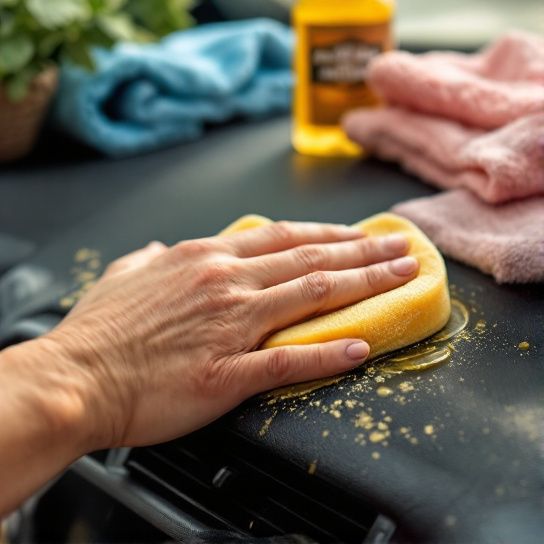Ever wondered why some people seem to have endless energy while others feel like they’re dragging by lunchtime? It’s like they have a hidden secret, right? Well, here’s the thing — they might just be in tune with their metabolism.
Understanding Metabolic Science: The Basics
Let’s dive into the basics of metabolic science. At the heart of it all is metabolism — it’s the process your body uses to convert food into energy. Every time you munch on something delicious, your body is hard at work transforming that into fuel. And it’s not just about energy; it affects everything from cell repair to hormonal balance.
Key Players in Metabolism
When we chat about metabolism, we’re talking about two main processes: **catabolism** and **anabolism**. Stick with me here, ‘cause these aren’t just big words; they actually make a lot of sense.
- Catabolism: This is all about breaking things down. It’s like your digestive system’s demolition job. Your body breaks down molecules to obtain energy, usually by burning calories.
- Anabolism: Think of this as the construction crew. Your body uses energy to build and repair cells. It’s all about growth and using stored energy creatively.
These processes are in constant play in your body, keeping everything running smoothly. If your body’s a city, these are the workers keeping it buzzing!
Common Myths and Facts About Metabolism

Okay, so before we dig deeper, we need to squash some myths. Metabolism’s got a reputation — not all of it’s accurate.
Metabolism and Natural Beauty Products: Interesting Link?
You wouldn’t have guessed it, but the world of natural lotions and pot is sprinkled with metabolic miracles. Many of our favorite lotions and potions are based on encouraging metabolic processes in your skin. It’s like giving your skin cells a ginger shot — invigorating and renewing. Catch my drift?
Myth 1: Metabolism Slows Down Only Because of Age
Busted: Metabolisms can vary with muscle mass, activity levels, even sleep quality. Sure, age plays a role, but don’t pin it all on birthdays.
Myth 2: Men Have Faster Metabolism than Women
Partly true: Body composition often means men have more muscle mass, which burns more calories at rest. However, a lot depends on lifestyle choices too. Ladies, don’t count yourself out — your metabolism might just need some fine-tuning.
Boosting Your Metabolism: Real-World Tips
Now, you’re clued in about the basics and a few misconceptions. Let’s turn the conversation toward something super practical. How can you rev up your metabolism? Here are some real-world steps to circle back to.
Eat Enough — Really!
Skipping meals might sound tempting, but trust me, it’s a no-go. Regularly fueling up keeps your metabolism steady. So, don’t ditch breakfast, and consider small meals throughout the day.
- Protein, fiber, and complex carbs are your friends. They keep you full, and help maintain your muscle mass — key to boosting your metabolic rate. Think lean meats, beans, whole grains, and greens. Yum!
Move More, Preferably with Joy

Exercise isn’t just about running on a treadmill. Whether it’s dancing in your living room or a quick yoga sesh, every bit counts.
- Mix it up with aerobic exercises and strength training. Pumping up muscle mass increases your basal metabolic rate (BMR), making your body work harder even when you’re Netflixing.
Hydrate, Hydrate, Hydrate
We’ve all heard this one, yet some of us need the reminder. Water is like the lubricating oil in your metabolic machine.
- Cold water has a sneaky benefit — your body uses energy to heat it to body temperature. It’s a small thing, but hey, every little bit helps!
How Stress Messes with Metabolism
Before you brush off stress management, hear me out. Stress wrecks havoc on your metabolism. It messes with hormones like cortisol, which can increase appetite and promote fat storage. So, addressing stress isn’t just a mental health issue, it’s a metabolic one too.
- Integrate relaxation practices, be it meditation, a walk in the park, or just breathing deeply. Your metabolism will thank you.
Sleep and Metabolism: A Nightly Discussion
Ah, sleep — the ultimate reset button. While you snooze, your body’s hard at work balancing hormones and restoring energy.

- Studies show lack of quality sleep can lower your metabolic rate and elevate cortisol. To keep your metabolism kicking, aim for 7-9 hours of restful sleep. It’s golden advice, trust me on this.
Metabolic Science and Natural Beauty Products: A Striking Synergy
The Science Behind It All: Why It Matters
Here’s where it gets fun. Several natural beauty products include components that apparently help stimulate your metabolism from an outside-in approach. Ingredients often found in skincare, like caffeine and green tea extract, don’t just energize your mornings; they can spur cell metabolism too.
- Caffeine in lotions might help reduce puffiness as it boosts blood flow and energizes the skin’s surface cells, enhancing their metabolism.
- Antioxidants like vitamin C & E found in serums and creams support skin’s natural repair processes — a form of metabolic boosting on a cellular level.
Holy Grail Finds: Give These a Try
When sifting through natural beauty products, keep an eye out for ingredients that promote healthy cell metabolism.
| **Ingredient** | **Benefit** |
|---|---|
| Caffeine | Stimulates cell turnover, reduces under-eye puffiness. |
| Green Tea Extract | Antioxidant-rich, aids in sun protection and skin rejuvenation. |
| Coenzyme Q10 | Speeds up cell metabolism, reduces oxidative damage. |
| Retinol or Vitamin A | Promotes cell turnover, which is essential for fresh, young-looking skin. |
Final Thoughts
Metabolic science may seem complex, but at its core, it’s about understanding the vital processes that power every cell, every function in your body. By being mindful of what you eat, moving your body, managing stress, and exploring natural beauty products loaded with metabolism-supporting ingredients, you can give your metabolism the boost it needs to feel energized and at your best.
Remember, it’s all interconnected and taking small, consistent steps can lead to luminous results. You’ve got the keys — so go on, unlock that energy potential!
Frequently Asked Questions
What does it mean when a product is labeled as “natural” in the context of beauty products?
When a product is labeled as “natural,” it does not necessarily mean it contains no synthetic chemicals. The term “natural” is not defined by the U.S. government, so it is important to read the ingredients list to understand what the product contains. Natural cosmetics typically include ingredients found in nature, such as mica, silica, and clay, without significant chemical alteration[1][2][4).
Why aren’t all cosmetics natural if they are supposedly better for the skin?
Several reasons contribute to why not all cosmetics are natural. Cost is a significant factor, as organic ingredients are generally more expensive than synthetic ones. Additionally, natural ingredients can be challenging to blend and preserve without using proven chemicals, which are necessary for maintaining the product’s stability and preventing bacterial growth. The desired qualities in cosmetics, such as lightness and easy absorbability, often rely on well-known chemicals[1][2][4).
What are the benefits of using natural beauty products?
Natural beauty products offer several benefits. They are often gentler on the skin, containing fewer harsh chemicals and artificial fragrances, which makes them suitable for sensitive skin. These products can help nourish the skin with vitamins, minerals, and antioxidants, reducing signs of aging and inflammation. They also tend to have fewer side effects and are more environmentally friendly[2][4][5).
How can I ensure a skincare product is truly natural or organic?
To ensure a skincare product is truly natural or organic, look for certifications like USDA Organic or ECOCERT. Read the ingredient labels carefully to identify recognizable organic ingredients and avoid products with excessive synthetic additives. Research the brand’s reputation and ingredient sourcing practices to make an informed decision[4]).
References

